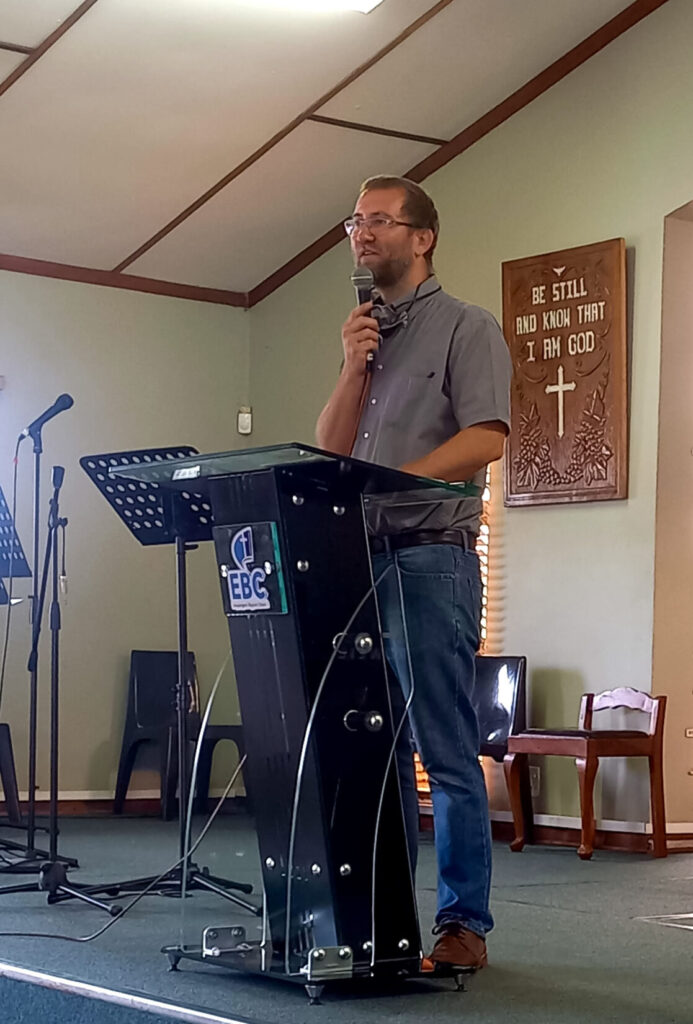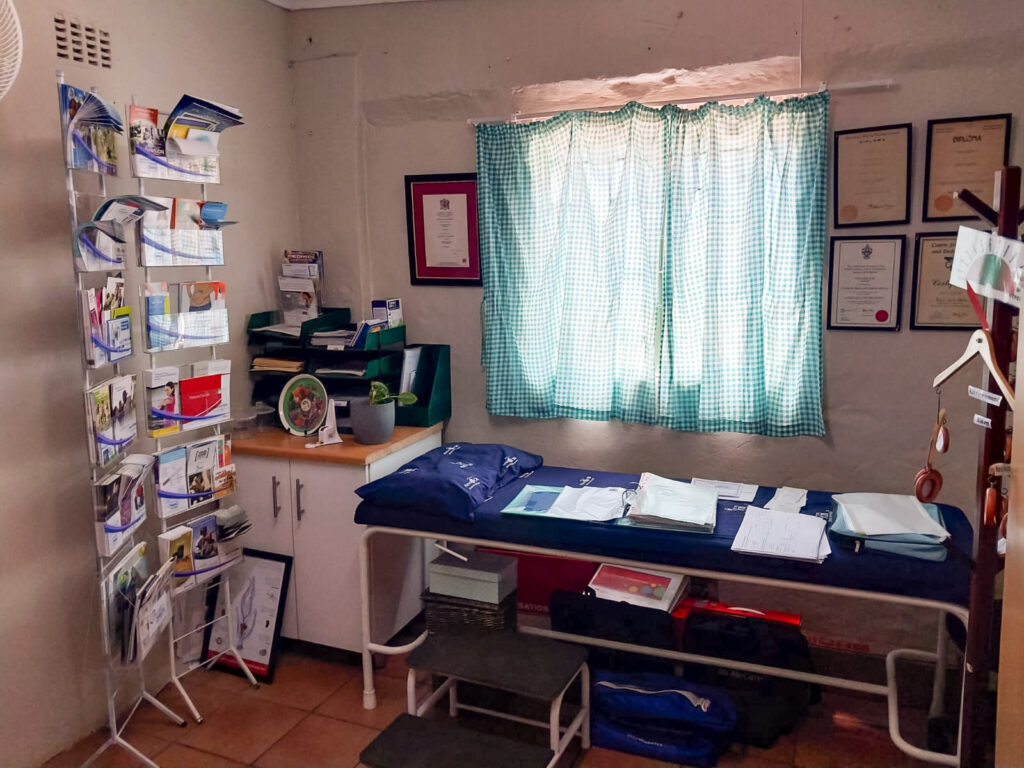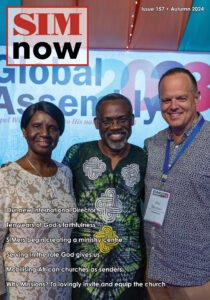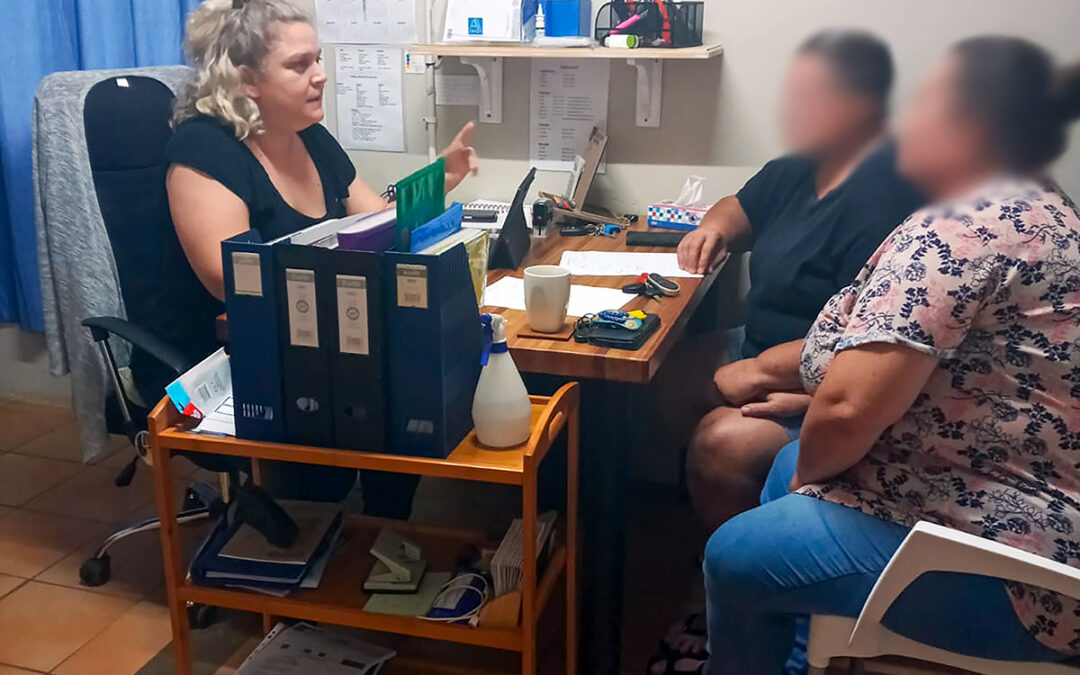As a child, I dreamed of becoming a medical missionary. My picture was of rural hospitals, disadvantaged communities, poor resources and serving with a team of like-minded people—the traditional picture that often comes to mind.
My reality is far different. I live in a town, work in a private medical practice and employ people. I am a business owner. There are times when it is difficult to accept that my reality is not what I thought it would be, that God is choosing to use me in a way that I did not foresee, times when it even causes me to question whether I am doing the right thing or not—because it does not look how I thought it would.
However, my dad always taught me of the missionaries of years gone by—John G Paton, Rowland Bingham, Eric Liddel and Jim Elliot—and something that they all had in common was that they did what God asked them to do—no more and no less.
 In 2019, Colin and I felt the call to ministry more firmly than we had ever before. We knew of SIM and my sister, Naomi Charlton, was already a member. We knew we were called to full-time missionary work, we knew we wanted to go with a mission organisation, and we knew we wanted it to be SIM—but we didn’t know where we were going. We thought maybe Ethiopia and investigated options there, but we did not have peace.
In 2019, Colin and I felt the call to ministry more firmly than we had ever before. We knew of SIM and my sister, Naomi Charlton, was already a member. We knew we were called to full-time missionary work, we knew we wanted to go with a mission organisation, and we knew we wanted it to be SIM—but we didn’t know where we were going. We thought maybe Ethiopia and investigated options there, but we did not have peace.
The more and more we prayed about it, the more we felt called back to Empangeni, the town in KwaZulu Natal where we had both grown up. At that stage, Colin was going to work for an NGO called MusaweNkosi Ministries. MusaweNkosi means “God’s Grace” in isiZulu, and it was started in 2001 by my parents. From a children’s home, it had grown to community work, skills training, an education centre, and a feeding scheme, so they were desperate for help. Colin was going to be full-time in ministry; I was going to work part-time as a doctor in a private practice and then do admin for MusaweNkosi. It was necessary for me to do some medical work to help towards the finances, as support-raising was getting increasingly more difficult—but medicine was not going to be my ministry.
Over the course of the last few years, circumstances have slowly changed, and I ended up opening my own practice. It was a big decision—one I did not enter into lightly. Starting a practice of my own would require all my time, it would carry a new set of responsibilities and skills and it just didn’t feel like ministry, which after all, was why I was in Empangeni. I consoled myself with the idea that Colin was still doing ministry and I was supporting the family—a different picture from what we had originally thought but not a total sell-out because one of us was still in ‘real’ ministry, being a ‘real missionary’.
The start of Chris Tomlin’s song ‘Is He Worthy’ asks, ‘Do you feel the world is broken? Do you feel the shadows deepen? But do you know that all the dark won’t stop the light from getting through? Do you wish that you could see it all made new?’
Working in general practice, the answer to those questions is an unequivocal yes! The world is a broken place and people are hurting. Hurting and hiding it. Hurting and hurting others in return. Hurting and unsure where to turn.
Rather than only providing financially for our family, the practice has become another place of ministry. Over fifty percent of the patients whom I see have some form of emotional or mental problem, and many don’t even know that is the underlying problem. They come in with physical complaints and want a pill to solve the problem, but a tablet is not what they need. They need a place to talk, a place to be honest, a place to cry. Private psychologists are few and are expensive, the government system is overwhelmed, and most pastors do not have the expertise to counsel mental health problems, so people go to their general practitioner or family doctor. Christian, non-Christian, Hindu, traditional African religion, and Muslim—people from all walks of life, all religions and socio-economic statuses go to the doctor. Everyone gets physically ill and needs medicine at some point. Many come with a physical symptom and end up having a cry; talking about their anxiety or depression; sharing trauma from their past.
 The practice is intentionally structured to be different, but different is hard. It’s different to a conventional doctor’s practice; it is also different to a conventional ministry—and there are times when it feels like we are justifying it on all sides. Why does it not look like a good business with lots of profit? Why is it not a free service and pure ministry? Why am I working and not home with my children? Why am I not open on a Saturday and late hours?
The practice is intentionally structured to be different, but different is hard. It’s different to a conventional doctor’s practice; it is also different to a conventional ministry—and there are times when it feels like we are justifying it on all sides. Why does it not look like a good business with lots of profit? Why is it not a free service and pure ministry? Why am I working and not home with my children? Why am I not open on a Saturday and late hours?
The ministry I have is not the ministry I dreamed of when I was small. There are parts of it that I don’t enjoy, that I find really difficult. There are parts of it that I love, that I know make a difference. Some days I see patients with end-of-life illnesses; I talk to them and their families, pray with them and ease their pain and suffering. Some days I see lots of respiratory tract infections, write scripts for pain pills, and sort out accounts. Some days I know I’m making a difference and some days I’m wracked with worry over finances, over my skill, over my family.
Different is difficult no matter how you cut it. Different to the world, different to the norm, different to how you thought it would be, different to how you wanted it to be, different to what you thought God wanted you to do. But God did not call us to be the same. He called some to be pastors, some to be evangelists, some to be children’s workers, some to be teachers, some to be doctors. He has called some to go and some to stay. He has called some to give and some to pray. He has called each of us to something different.
He has not asked me to go to a rural hospital with poor resources. If I went without Him sending me, it would not be God-honouring or obedient. He has asked me to work in a private medical practice in a small town in KwaZulu Natal—to do what I can, where I am, with what I have. He has asked me to trust Him even though it is difficult. Each of us has a different calling and a different story. If yours isn’t quite what you thought it would be, if you wonder what it is He wants of you, if you don’t know what to do—just ask. Ask God for wisdom and He will give it to you. Ask Him to show you His will for your life, and He will steer you. He may not show you the big picture, but He will guide your footsteps. Be guided by the Spirit, be guided by the Word, and take comfort in the knowledge that He knows the plan—even if you do not.
If you want to read more about MusaweNkosi, you can find their website at www.musawenkosi.org.za.
If you would like to know more about our ministry in Empangeni—the medical ministry or Colin’s work—we would love to hear from you. You can email us at [email protected] or [email protected].

This article is reprinted from SIMnow issue 157, available for download at https://sim.org.za/simnow/.
Text and photos by Dr. Rebekah Cooper, SIM South Africa Missionary

